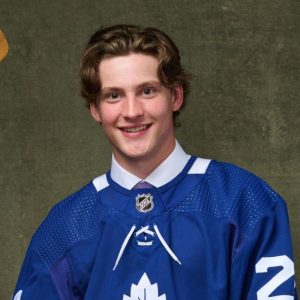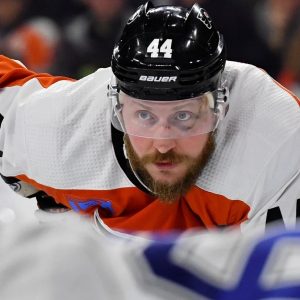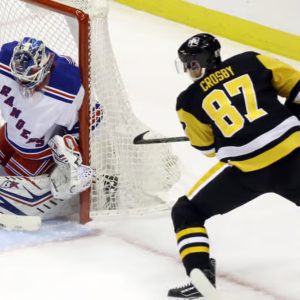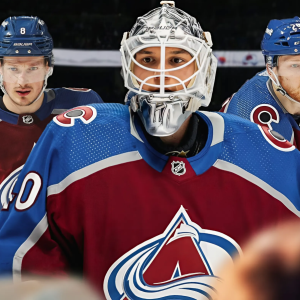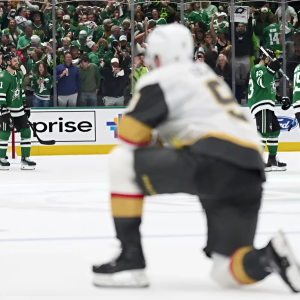The 1998 Olympic Games in Nagano were supposed to see a blueblood turn golden. They were supposed to be a write-off, when NHLers allowed in the games would lead Canada, Russia, the United States to the top of the podium. No longer would the rules of amateurism hold back the sport’s greats.
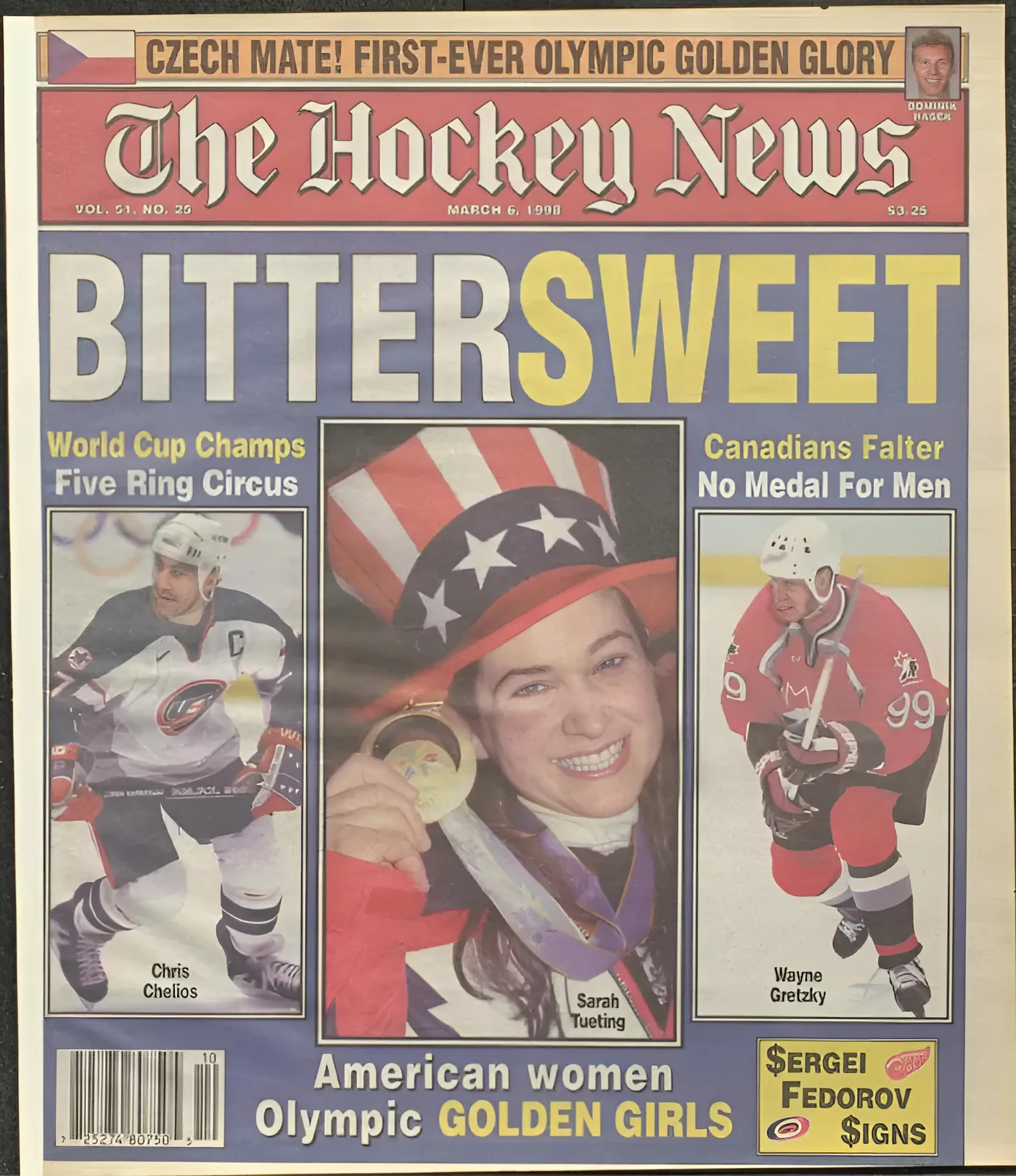
Instead, 1998 saw one of the great underdogs win it all.
In 1998, the Czech Republic (now known as Czechia) won Olympic Gold by running through all three of those favored national teams. Backstopped by Red Wings legend Dominik Hasek, the Czechs might as well have been the Checks for the way they defended against some of the world’s great talents.
After round robin play saw the Czechs place as the second seed in their pool, they took on a U.S. team that featured future Red Wings in Brett Hull, Mathieu Schneider, Derian Hatcher and Mike Modano. The Czech’s 4-1 win propelled them to a semifinals game against Canada, where Detroit captain Steve Yzerman and teammate Brendan Shanahan were part of a team featuring a who’s who of Hall of Famers. The Czech team beat those Canadians in a shootout that saw Wayne Gretzky infamously glued to the bench.
By the gold medal round, the Czechs faced a Russian team that had beat them in a big third period comeback in the round robin. There would be no comeback in the championship game, as the Czechs scored eight minutes into the third period and Hasek slammed the door with a shutout.
Hasek’s triumph with the Czechs is one of the finest goaltending performances in Olympic history, the kind of underdog legend that makes the Olympics so endearing.
For Yzerman, Shanahan and the Canadians, 1998 didn’t stay a disappointment. They won the Stanley Cup for the second year in a row three months later. Soon, the dominant Hasek would be their teammate as the Red Wings won their third Stanley Cup of the era in 2002.
With the 2024 Paris Summer Olympics underway, let’s look back at the 1998 Czech team with this piece from former The Hockey News editor-in-chief Bob McKenzie.
NAGANO–It was the Sunday when NHL players gathered to begin their Olympic odyssey.
The Americans, all decked out in their Team USA garb, took off from San Francisco on then-private charter, out to defend their unofficial title as world champions. At the same time, up the coast in Vancouver amid much fanfare and hoopla, Team Canada trooped the colors as it boarded its own luxury charter aircraft, in search of redemption.
The European NHLers-the Swedes, Finns, Czechs and Russians-had no central rallying point, no team yet to call their own. Some left from Los Angeles. Others from Vancouver. Still others from Detroit and many points in between.
Well, a funny thing happened on the way to Nagano. The Czechs came together to become a team in the truest sense of the word. So did the Russians and the Finns, too. And they have the gold, silver and bronze medals to prove it.
Surprised? Shocked would be a more appropriate description.
Canada, the United States and Sweden, three of the four teams in one pool, were supposed to dominate the 1998 Winter Games. Canada finished fourth. The Americans and Swedes never made it as far as the semifinals. The supposedly weaker pool, with the Czechs, Russians and Finns, was expected to be nothing more than fodder. Instead, they all went home with medals.
“This is the greatest day ever in Czech hockey,” said forward Martin Straka after his team scored a 1-0 win over Russia in the gold medal game at Big Hat Arena on Feb. 22. “Nothing else compares.”
Eight hours after their win, at midnight in Nagano, coach Ivan Hlinka’s team boarded a charter flight bound for Prague, where a national celebration was in full swing. The Czech team was to be honored Feb. 23 at a ceremony in Prague’s Old Town Square.
“We will go home,” an elated Dominik Hasek said immediately after the game.
Win or lose, once the Czechs were in the gold medal game, the trip had been planned and Hasek thrilled at the thought of hundreds of thousand of Czechs sharing in the moment.
When that was over, the 10 NHLers on the 23-man Czech roster would again take separate paths back to their NHL clubs, but are now linked forever as 1998 Olympic champions.
It is the Czechs’ first-ever Olympic gold in the first-ever Winter Games with full-scale NHL participation.
The record will show that netminder Hasek, ‘The Dominator,’ led this improbable Czech team to victory, posting a pair of shutouts (against Finland and Russia) and a dramatic shootout victory (over Canada) en route to a 5-1-0 record and the gold.
Hasek was good. At times he was great, especially in the 4-1 quarterfinal win that eliminated the U.S. and during the late stages and shootout of the semifinal win over Canada. The Czechs likely wouldn’t have won gold without him. But as good as the Buffalo Sabre goalie was, he was not the focal point for this story.
That honor goes to the entire Czech team, notably a much-maligned defensive crew that emerged as the tourney’s most valiant defenders.
It was a group far greater than the sum of its parts. Jiri Slegr and Richard Smehlik, regarded as two fair-to-middling NHLers, were towers of defensive strength. So, too, were Frantisek Kucera, a failed NHLer, and Jaroslav Spacek, a virtual unknown. The third pair was Roman Hamrlik and Petr Svoboda, who scored the only goal of the gold medal game when he rifled a point shot past Russian goalie Mikhail Shtalenkov at 8:08 of the third period.
“I read in a lot of places that we had the worst defense,” Svoboda said. “I read that we wouldn’t be good enough. I don’t mean to sound cocky, but we were out to prove people wrong. That was our approach.”
One of those places Svoboda read that was in The Hockey News. In the THN Olympic preview, analyst Dave King wrote:
“The (Czech) defense is marginally improved (from the World Cup)…but it’s still not good enough…Defense is the weak link because the Czech’s non-NHL blueliners just aren’t good enough and the forwards aren’t much help defensively.”
To King’s credit, though, he raised the possibility of the Czechs making noise at the Olympics. He wrote: “For all their shortcomings, the Czechs must be feared,” because they can be a force “when they are inclined to play the left wing lock, a system they pioneered and, at times, have perfected.”
That is precisely what happened. The Czechs’-offensive stars sacrificed their offensive instincts to play the team game. Jaromir Jagr, arguably the most dangerous offensive player in the world, scored one goal in six games.
“We built up in this tournament a great team around Hasek,” said Czech assistant coach Slava Lener.
Overall, it was a magnificent team effort and an exercise in uncharacteristic defense-first hockey. The Czechs never gave up more than two goals in a game. One was an 8-2 win over Kazakhstan; the other a 2-1 round-robin loss to the Russians, where Hasek gave up two goals in 10 seconds. The Finns were blanked in the round-robin. Canada and the U.S. managed but one goal apiece and the Russians, even with nine-goal man Pavel Bure on a mission, couldn’t score in the finale.
And it’s not as if the Czechs had an easy path. They had to knock off the highly touted Canadians and Americans in elimination games. The only hockey power they didn’t beat, or meet, in the tourney was Sweden.
“That’s what make it’s so special,” Straka said. “We beat all the teams that were supposed to be the best.”
It was the diametric opposite of Czech fortunes during the 1996 World Cup, when they were humiliated, losing every game they played. Hasek didn’t play in that tournament, but, again, the big difference wasn’t so much on the ice as it was behind the bench and in the minds of the Czech players.
“We all thought we were superstars in that tournament,” Straka said. “But the truth is we have only two superstars, Hasek and Jagr. This time, we played like a team.”
Much of the credit for that must go to head coach Ivan Hlinka. the former Czech national great who played briefly in the NHL with the Vancouver Canucks in the early 1980s.
Hlinka and Lener decided after the World Cup that if they were going to be successful in the Olympics, they had to adjust the players’ attitudes. The best way to do that, they concluded, was to use Czech players playing in European leagues as the basis on which to build the team. As crucial as Hasek, Jagr, Robert Reichel, who scored three key goals in the Olympics, Martin Rucinsky and the other NHLers would be, Hlinka wanted to reward Czech players who have great pride in Czech hockey. So, Pavel Patera, a center who plays in Sweden, keyed one line with Milan Hejduk and Martin Prochazka. Former NHLer Vladimir Ruzicka, regarded as a soft floater in his NHL days, centered Straka and Jagr and scored three goals.
One line, Jiri Dopita between ex-NHLer Josef Beranek and David Moravec, consisted entirely of players from the Czech League.
“Something many people in the NHL and North America may not realize is that after you get past the first seven or eight Czechs in the NHL, many of the Czechs playing in Europe are as good as the others in the NHL,” Lener said. “So we learned from the World Cup disaster. Ivan and myself, we met individually with each player over the summer and laid out the plan. The players went for it. Still, we were not a team when we first came here, but we grew into a team.”
The two teams most inspired not to duplicate World Cup disasters were the Czechs and Russians, whose bad chemistry in 1996 was a major problem. It’s no coincidence they were the final two teams playing in the Olympics.
Much was made of the differences between European hockey and the North American brand, except the philosophy embraced by the Czechs and Russians is universal-the best team, not the team with the best players, usually wins out
Hlinka gets full credit for putting it all together. “I wouldn’t have been here if he wasn’t coaching,” said Svoboda, who defected from communist Czechoslovakia in 1984. “I didn’t play in the World Cup because they didn’t have the right people in charge. Ivan knows how to treat hockey players.”
It was emotional for all the Czechs, but for none more than Svoboda. After he defected, his family’s life became a living hell. His father, a coach in the Czech League, lost his job. His brother wasn’t permitted to travel abroad. After watching the Czech flag being raised and the national anthem played. Svoboda said, “I haven’t heard that in a long time.”
